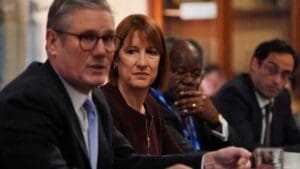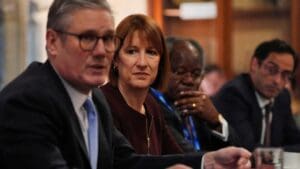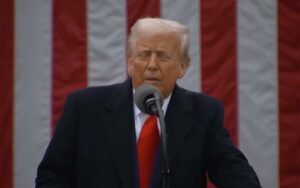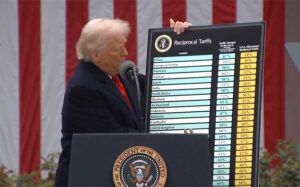UK economic forecasts called into question as ONS data reliability falters


The credibility of UK economic data has been thrown into doubt after senior officials at the Office for Budget Responsibility (OBR) and the Bank of England raised serious concerns about the reliability of statistics produced by the Office for National Statistics (ONS).
Speaking to MPs on the Treasury select committee, Richard Hughes, chairman of the OBR, warned that “trying to get a clear read” on the UK economy from current ONS data is “very difficult”. His comments follow a sharp decline in response rates to the ONS’s labour force survey, which has compromised the quality of data on employment and wage trends.
The situation has now triggered a formal government investigation into the “performance and culture” of the ONS. The review, commissioned by the Cabinet Office and the UK Statistics Authority (UKSA), will be led by Sir Robert Devereux, a former top civil servant, and is expected to conclude this summer.
The ONS’s labour force survey — a key tool used by the Bank of England and the OBR to inform monetary and fiscal policy — has seen its response rate fall from around 50 per cent a decade ago to just 12.7 per cent in 2023. Although it has since improved marginally, the data remains under significant scrutiny. The ONS has delayed the rollout of a new “transformed labour force survey” until 2027, despite spending £40 million on its development.
Professor David Miles, a fellow OBR committee member, compared the current approach to “trying to generate economic data with a tool which isn’t working as well as it did in the past”.
Beyond labour data, confidence in other key metrics — including GDP, trade, and inflation — has also weakened. The ONS has recently delayed publication of several important statistics due to quality concerns, while the Institute for Fiscal Studies (IFS) has criticised a recent £2.2 trillion revision in household wealth estimates as “fundamentally flawed”.
Bank of England governor Andrew Bailey has described the shortcomings in the ONS’s data as a “substantial problem” for interest rate setting.
Sir Robert Chote, chair of the UKSA, said the review into the ONS is an opportunity to ensure the statistics agency is equipped to meet rising expectations. “This is a chance to help ensure the ONS can deliver of its best in what is a challenging external environment.”
Concerns have been echoed by Dame Meg Hillier MP, chair of the Treasury select committee, who recently wrote to UK chief statistician Sir Ian Diamond to express alarm about the impact of unreliable labour market data on policy decisions.
The accuracy of ONS data underpins everything from interest rate movements to government tax and spending decisions. Forecasts produced by the OBR are heavily reliant on these figures to determine fiscal headroom — the margin chancellors such as Rachel Reeves have to meet borrowing rules.
Hughes also told MPs that the OBR did not factor in President Trump’s proposed 25 per cent car tariffs in its spring economic forecast, citing their rapidly shifting nature. Had they been included, the chancellor’s £9.9 billion fiscal buffer could have been significantly eroded.
The OBR did, however, model potential outcomes of the tariffs in alternative scenarios — including one where retaliatory trade measures reduce UK GDP by 1 per cent.
While challenges with data collection are affecting other developed economies, experts warn that the UK’s issues are becoming particularly acute. The response rate for the Living Costs and Food Survey has dropped from 60 per cent to just 22 per cent over two decades, while the DWP’s Family Resources Survey now receives only 25 per cent participation.
With the integrity of key data under the microscope, the outcome of the Devereux review — and the government’s willingness to act on its findings — may have far-reaching implications for business confidence, policymaking, and the UK’s economic resilience.
Read more:
UK economic forecasts called into question as ONS data reliability falters








